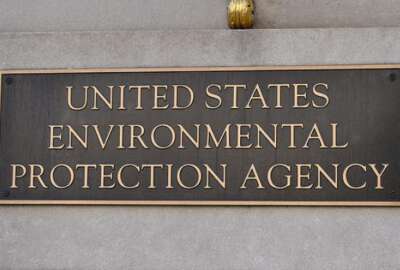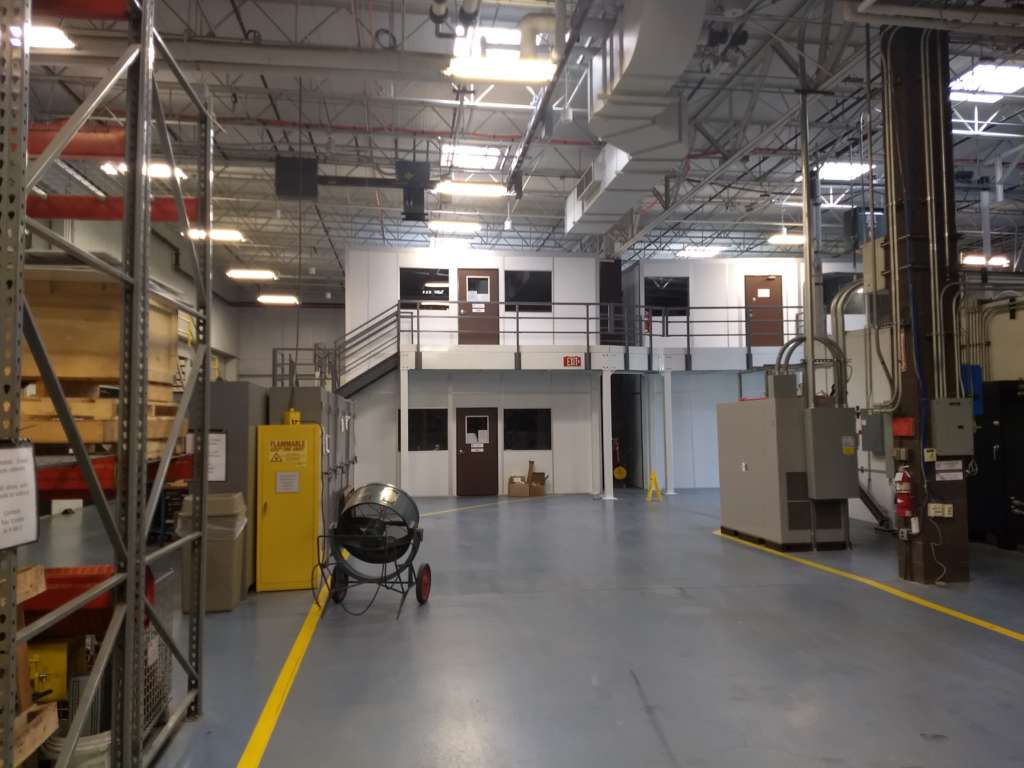

AFGE officials representing the affected employees have concerns about their lack of access to air quality records at their new workplace: the EPA’s vehicle...
Best listening experience is on Chrome, Firefox or Safari. Subscribe to Federal Drive’s daily audio interviews on Apple Podcasts or PodcastOne.
The Environmental Protection Agency has closed an agency-owned facility in Michigan, but union officials representing the affected employees have concerns about delays in accessing air quality records for their new workplace: the EPA’s vehicle emission testing lab in Ann Arbor, Michigan.
AFGE Local 704 President Nicole Cantello, in a memo obtained by Federal News Network, urged EPA management to uphold its agreement to allow union officials to see air quality testing records at the vehicle emissions facility prior to the move.
But time is running out — the EPA is closing the Large Lakes Research Station in Grosse Ile, Michigan on Wednesday, and will relocate personnel to the National Vehicle and Fuel Emissions Laboratory in Ann Arbor on Monday. The move will affect about 20 EPA emergency response employees.
The EPA’s unilateral collective bargaining terms, which went into effect on July 8, have raised further challenges for the office consolidation.
Under a memorandum of understanding (MOU) AFGE Local 704 reached with EPA management in February 2018 to finalize the Grosse Ile lab’s closure, the union was guaranteed access to air quality records for the Ann Arbor facility prior to the move-in date.

But the latest collective bargaining terms, which the EPA introduced in June and implemented without AFGE’s approval, have “wiped away” the conditions of the relocation that EPA management agreed to last year, Cantello told Federal News Network, making the previous agreement unenforceable.
“There was nothing in place to ensure that the union saw any of the air quality testing ventilation that was required, or would show that the air in the Ann Arbor facility that the employees were going to start inhabiting was safe,” she said in an interview Wednesday.
In an effort to get the air quality records the EPA previously agreed to provide, Cantello drafted a formal request for information to Richard Marling, an EPA Region 5 manager.
In the request, she said the union still has a right to view air quality documents under the EPA’s obligation to “negotiate in good faith” with its unions.
“That air quality testing, which was promised under the MOU, has not been provided to the Union. The Union needs to determine, as soon as possible, if the air in an EPA workplace is safe,” Cantello wrote in the memo.
The request includes “any ventilation surveys conducted in or around the Ann Arbor workplace, including those to ensure vehicle exhaust does not affect the new offices and common areas and to ensure that air quality meets or exceeds” EPA standards for indoor air quality.
An EPA spokesperson told Federal News Network that the agency is “completing a thorough indoor air quality assessment of the new space and will share the results with AFGE and employees.”
Employees will continue to carry out their normal duties, including emergency response, after the relocation to Ann Arbor, the spokesperson added.
“EPA is committed to supporting all the communities covered by this field office and does not anticipate any impact on the on-scene coordinators’ mobilization capability or response times,” the spokesperson said.
But even if AFGE 704 officials receive the requested records before the move-in date, Cantello said that still doesn’t give employees much time to process the information.
“We consider that to be a very distressing problem. There are folks slated to move in on Monday and we still not have received any information,” Cantello said. “We do have employees who are people who would be able to look at this information, decode it and understand what it says, but they would still need some time to look at that.”
Last October, the EPA tested the vehicle emissions lab for Legionella bacteria after an employee was diagnosed with Legionella pneumonia, better known as Legionnaires’ disease. However, tests later found no evidence of Legionella bacteria at the lab.
The EPA’s Office of Reseach and Development first made the decision to close the Large Lakes Research Station in November 2015. The EPA has operated out of the lab since the 1970s, which previously served as an Air National Guard base.
The station also previously staff from the Commerce Department’s National Oceanic and Atmospheric Administration and the Interior Department’s Fish and Wildlife Service. The facility also served as a Great Lakes research lab before ORD moved its research personnel to Duluth, Minnesota.
An EPA spokesperson told Federal News Network that the station had been “largely vacant and in need of costly renovations,” making it a solid candidate for closure. By relocating those employees to Ann Arbor, the EPA expects to save more than $500,000 per year.
The agency’s decision to shutter the station has also received support from the General Services Administration and the Office of Management and Budget, which must identify a shortlist of excess civilian agency properties under the 2016 Federal Assets Sale and Transfer Act.
The EPA’s lab consolidation is part of the agency’s doubling down on an effort dating back to the George W. Bush administration to shrink the federal real estate footprint across the country.
Last month, the EPA announced its plans to close its Las Vegas Finance Center and relocate 16 employees to facilities in North Carolina’s Research Triangle or Cincinnati, Ohio.
ORD and the National Exposure Research Laboratory ceased operations in Las Vegas last summer and gave the 50 employees impacted by the closure about six months to relocate to new offices, accept a buyout or step down from their positions.
But that’s a fraction of the time EPA employees at a lab in Houston, Texas will have to relocate.
E&E News first reported in June that EPA Region 6 Administrator David Gray briefed employees about relocating to the Robert S. Kerr Environmental Research Center in Ada, Oklahoma within the next three years.
Members of Congress have attempted to prevent the EPA from closing these facilities last year by including a provision in the fiscal 2018 spending bill that would prevent the agency from consolidating or closing any “regional offices.”
But the EPA proceeded with closing the Las Vegas labs, arguing that the regional offices mentioned in the spending bill referred to 10 agency hubs located across the country.
In June, Reps. Debbie Dingell (D-Mich.) and Rashida Tlaib (D-Mich.) introduced an amendment to the FY 2020 spending bill that would have prevented the EPA from using funds to close the Large Lakes Research Station.
“I have people in my office every day telling me how critical it is to the Great Lakes emergency cleanups,” Dingell told EPA Administrator Andrew Wheeler at a budget hearing in April, urging him to reconsider the lab’s closure.
Wheeler told Dingell the EPA would “take another look” at the proposed closure, but said the agency needs to consolidate its office space, which he said can be found in about 40 states.
“We have facilities in almost every state … and we need to be reducing our footprint,” Wheeler.
Copyright © 2025 Federal News Network. All rights reserved. This website is not intended for users located within the European Economic Area.
Jory Heckman is a reporter at Federal News Network covering U.S. Postal Service, IRS, big data and technology issues.
Follow @jheckmanWFED


